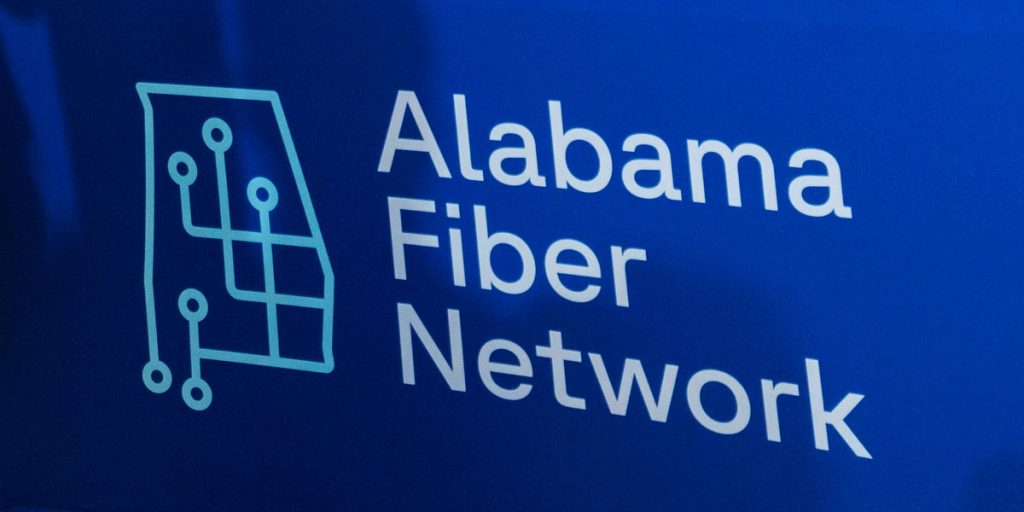State Senate Majority Leader Greg Reed (R-Jasper) does not mince words when describing the importance of expanding access to broadband in Alabama.
“It is a significant statewide issue,” he told Yellowhammer News during a recent conversation. “I consider it a top five issue for Alabama’s future.”
Calling broadband a “fundamental infrastructure component,” Reed can easily rattle off many of the countless ways in which technology affects the daily lives of Alabamians and, as he says, the things which “make internet access and broadband access across our state a must.”
The need for high-speed internet access “has an impact on every area of our life,” according to Reed.
He points out that the state’s economy has long been the focal point for broadband expansion.
“No business is going to build a $25 million facility in an area that does not have access to high-speed internet, it’s just not going to happen,” he said.
Reed believes the conditions created by the COVID-19 crisis have brought a renewed urgency to the effort.
Healthcare, quality of life elements and education present different challenges now than before the crisis.
“Telemedicine visits are becoming more prevalent,” Reed offered. “This is another opportunity, especially in the midst of the pandemic situation we find ourselves in, to where this is something that’s very important. In my opinion, we are never going to go back to where this is not a routine part of the healthcare delivery system.”
Reed says one quality of life element brought to light during the pandemic is simply the ability to connect and interact with family and friends. He says video conferencing can provide much needed socializing in a time like this.
Education — ‘It is going to be a real challenge to do those online classes from home’
Perhaps the most lasting impact of the COVID-19 crisis on the need for broadband expansion will be in the area of education.
“We now have a situation where our children are being educated at home which adds a whole new dimension to the need for internet access,” Reed said.
Policy discussions at the legislature, according to Reed, often center around the allocation of resources in the area of technology in order to prepare students for the 21st century economy and world.
“We have struggled with the idea of providing tablets or providing technology to students that then once they go home from the school they can’t even use them,” he outlined. “That’s an issue that persisted before the pandemic, but now we find a scenario where the only education opportunities that are out there for our hard-working teachers to provide for students is internet-dependent learning. It is not just K-12 students, either. Our institutions of higher learning have gone completely online. If you are from my district, in Winston County for instance, it is going to be a real challenge to do those online classes from home if you do not have high-speed internet access.”
Approximately 125 miles south of Reed’s state senate district, Elmore County Superintendent of Education Richard Dennis found his school system facing a similar predicament.
Dennis oversees a school system with an enrollment of more than 11,000 students in a county where more than 40% of its citizens live in areas unserved or underserved by high-speed internet.
Elmore County stands as a lesson for both how the state’s broadband grants have succeeded — and for how much further the state has to go to ensure wider access in rural areas.
When confronted with the likelihood of virtual teaching for the remainder of the school year, Dennis purchased 3,500 Chromebooks for students to use during quarantine. And that was only part of the challenge he faced in a county with large gaps in its broadband coverage.
He quickly facilitated a partnership between the board of education, Elmore County Economic Development Authority (ECEDA) and Central Access, the broadband subsidiary of Central Alabama Electric Cooperative.
Out of this partnership grew more than 65 internet hotspots for students to use across Elmore County.
Much of this would not have been possible without previous broadband expansion done by Central Access.
“Central Access is really the backbone right now,” Dennis told Yellowhammer News.
A feasibility study conducted by Sain Associates and Central Access helped the county quickly understand where the hotspots could be established to help students. It also allowed them to set up a website as a resource for parents and students to locate hotspots.
In the long-term, the county now has a better understanding of where the gaps in high-speed internet access exist.
As the county is able to continue receiving awards from the state’s grant program, it is going to have positive effects on Elmore County students, according to Dennis.
“Central Access is going to drive the competition to expand broadband significantly in Elmore County,” he remarked. “What they have done has become the backbone of what we show on that map.”
While identifying several large unserved swaths across his county, Dennis noted Central Access will be integral to building out the county’s network.
“Central Alabama Electric Cooperative, with their backbone group, they’re looking to pursue grants over the next two years in some of these other areas that are really going to force the competition to step up or they’re going to take it away from them,” he said.
Like Reed, Dennis believes the COVID-19 crisis has infused additional intensity into Alabama’s effort to improve its broadband infrastructure.
“This situation is going to drive expanding broadband access to happen much quicker,” he predicted.
Elmore County had an existing virtual program which it was looking to grow at a moderate pace. Now, Dennis aims to merge its use into every school.
The school system has purchased an additional 2,800 Chrome books, which he says will put Elmore County “one-to-one” for K-12.
“As we start the next year, we will begin immediately to integrate the Chromebooks and the platforms that we are using, Edgenuity and Odysseyware, into our curriculums,” he said. “Having our students involved, teaching them how to login in, access and how to manipulate the programs. We are also going to conduct trainings for parents when we have an opportunity to actually bring them in.”
He plans to build off the lessons of the last few months and make it a learning experience for his entire system.
“This is a learning opportunity,” said Dennis. “We’ve been tossed into the deep end of the virtual pool, and we’ve had to learn how to swim, and that’s what we’re doing.”
While he feels confident his system will be trained and ready to learn in an increasingly virtual environment, there is still one big hurdle.
“The big issue then is going to be connectivity in these areas,” explained Dennis. “We are going to be looking to help out with hotspots and whatever else we can do. I think expanding broadband will help everybody, but specifically to education I know it will support us more because we will be able to utilize the tools we have, with the students they will be able utilize it in their homes.”
Funding
Additional funding will be critical to ensuring more Alabama students have access to high-speed internet.
Reed remains confident in the legislature’s ability to meet those needs.
“We pursue all options for funding,” he outlined. “We have resources in the budgets. We have a very aggressive grant program.”
Senate President Pro Tem Del Marsh (R-Anniston) recently proposed allocating some of the federal COVID-19 relief money toward broadband expansion, an approach Reed finds favorable.
“If we can use some of those resources through a methodology that we already have, like the grant program, but we have additional funding there, what does that mean?” Reed offered. “It just means our incentivizing of these companies that are the providers in these markets will ensure they go faster and deeper into these unserved areas. If that’s something that can be a use of these new resources to be able to benefit the people of Alabama long-term, not just in the next year, then I think that’s a smart thing for us to do.”
Reed supports use of the relief money coming from the federal CARES Act to reimburse the state, counties and cities for unexpected COVID-19 expenditures. He also thinks long-term needs should be a consideration in how that money is spent.
“Some of these dollars we want to make sure they would be spent on things that are the gift that keeps on giving,” he said. “The opportunity that continues to be a benefit to the people of Alabama long after I finish being in public service. I think that’s something the legislature and the governor are going to be very interested in doing.”
And he knows of at least one policy initiative meeting that criteria.
“I think a larger, broader, more in-depth broadband network in Alabama is a really positive thing, not only for today, but also for tomorrow and years and years into the future,” he concluded.
RELATED: Alabama’s rural broadband expansion meets resistance
Tim Howe is an owner of Yellowhammer Multimedia













